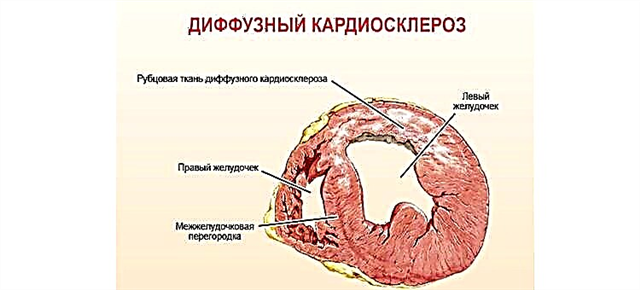The development of most respiratory diseases is accompanied by an increase in temperature, i.e. fever. This process is quite natural and indicates that the body is fighting against infectious agents. Can laryngitis be without fever? It should be understood that a change in temperature is a protective reaction, due to which the body's resistance to the influence of pathogenic agents increases. If inflammation in the larynx, epiglottis and vocal cords is associated with an allergic reaction or banal overstrain of the vocal apparatus, the temperature may not rise. In addition, fever rarely occurs in patients suffering from sluggish (chronic) laryngitis.
Fever causes
 Why does the temperature rise with laryngitis? An increase in temperature (fever) is a protective and adaptive reaction, which is characterized by a dynamic restructuring of the thermoregulation system. With laryngitis, pathogens enter the laryngeal mucosa, which multiply rapidly and cause inflammation. Pathological processes in the respiratory organs stimulate the synthesis of pyrogens in the body, which provoke an increase in temperature. What is it for?
Why does the temperature rise with laryngitis? An increase in temperature (fever) is a protective and adaptive reaction, which is characterized by a dynamic restructuring of the thermoregulation system. With laryngitis, pathogens enter the laryngeal mucosa, which multiply rapidly and cause inflammation. Pathological processes in the respiratory organs stimulate the synthesis of pyrogens in the body, which provoke an increase in temperature. What is it for?
A temporary increase in temperature stimulates the acceleration of biochemical processes in tissues, thereby increasing local immunity. With subfebrile condition (a slight increase in temperature up to 37.5 ° C), blood circulation accelerates. With the blood flow, leukocytes, neutrophils and T-killers penetrate into the lesions, which destroy the pathogenic flora. Moreover, with a change in the temperature regime, the activity of microbes and viruses decreases, as does their ability to reproduce.
Fever is not a disease, but a protective and adaptive reaction, which indicates an active struggle of the body against infectious agents.
Laryngitis temperature
What can be the temperature with laryngitis? How high the temperature will be depends on the characteristics of the course of the ENT disease, the causative agent of the infection and related complications. It is known that laryngitis often occurs due to the development of other colds such as ARVI, pharyngitis, influenza and herpangina.
With a viral lesion of the larynx, epiglottis and upper trachea, the thermometer often rises to 38.5-39 ° C (febrile temperature). It is at this temperature regime that the activity of virions is significantly reduced. In addition, during a fever, the body begins to actively produce interferon, which prevents pathogens from entering the cells of the mucous membranes. For this reason, it is recommended to use drugs based on leukocyte interferon for the treatment of viral diseases.
With bacterial inflammation of the larynx, the thermometer often rises to 37-38 ° C (low-grade fever). Changing the temperature regime inhibits the reproductive activity of pathogenic microbes. Due to this, their number in the lesions is significantly reduced, which leads to regression of inflammation and, accordingly, the elimination of most of the symptoms of laryngitis.
It should be noted that if the body temperature rises to 40-41 ° C, you need to call a doctor at home. Such high temperature indicators indicate an excessive synthesis of pyrogens in the body. Pyretic fever leads to severe sweating, which is fraught with dehydration and a deterioration in the patient's well-being. Pyretic (40-41 ° C) and hyperpyretic (over 41 ° C) fever can cause irreversible processes in the brain that can be fatal.
How long does the temperature last?
How should the temperature be kept? Infectious laryngitis leads to septic inflammation of the larynx, subglottic space and vocal cords. The duration of the fever depends on how long the inflammatory process will continue in the mucous membranes.
With adequate and timely treatment of viral laryngitis, it is possible to normalize the temperature regime within a day.
In the case of an acute course of bacterial inflammation in the larynx, fever can be stopped within 2-3 days. It should be understood that taking antipyretics will help temporarily relieve the course of the disease. But if the fever is subfebrile and does not threaten the patient's life, antipyretics should not be used. The composition of antipyretic medicines includes components that affect the activity of the hypothalamus. The violent restoration of normal temperature inevitably leads to a decrease in the rate of biochemical processes in tissues and, accordingly, to a decrease in local immunity. In this regard, the activity of pathogenic agents will only increase, as a result of which the infection will begin to progress.
Laryngitis without fever
 Functional and allergic laryngitis, as a rule, are not accompanied by hyperthermia. The fact is that with overstrain of the vocal cords, as well as allergic reactions, metabolites of pathogenic agents do not penetrate into the tracheal mucosa. But they are the catalysts for changing the temperature regime and the synthesis of pyrogens, due to which a new point of temperature homeostasis is established in the body for some time.
Functional and allergic laryngitis, as a rule, are not accompanied by hyperthermia. The fact is that with overstrain of the vocal cords, as well as allergic reactions, metabolites of pathogenic agents do not penetrate into the tracheal mucosa. But they are the catalysts for changing the temperature regime and the synthesis of pyrogens, due to which a new point of temperature homeostasis is established in the body for some time.
In addition, the patient may not have subfebrile condition in the chronic course of inflammatory reactions. According to practical observations, indolent laryngitis in the remission stage is asymptomatic. True, some patients still have a cough in the morning after waking up or at night. But the absence of pathological symptoms should not mislead patients. Even sluggish inflammation in the respiratory tract leads to the destruction of soft tissues and, as a result, complications. Therefore, chronic laryngitis must be treated without fail.
Do I need to bring down the temperature?
As already mentioned, an artificial change in the temperature regime with the help of antipyretic agents suppresses the synthesis of interferon in the body. It is this protein substance that protects the tissues of the larynx and vocal cords from the penetration of pathogenic viruses. Therefore, all patients who do not have problems with the cardiovascular system are not recommended to use antipyretics if the thermometer stops at 38.5-39 ° C.
The above rule does not apply to all patients, which should be taken into account. If, with febrile fever, the patient has ever had convulsions, tachycardia or dizziness, an antipyretic drug should be taken if the temperature has reached 37.5 ° C. In the presence of endocrine disorders, severe chronic diseases and pathologies of blood vessels, physiological measures can be used to normalize the temperature regime:
- air baths;
- cold compresses;
- vinegar wrap;
- drinking plenty of fluids.
If the fever is transferred relatively easily and its duration does not exceed 2 days, it is not recommended to bring it down. In all other cases, it is advisable to seek help from a specialist or call a doctor at home.
Effective antipyretics
How to quickly eliminate hyperthermia? An increase in temperature is caused by inflammatory reactions in the respiratory organs, therefore, to reduce it, it is advisable to use non-steroidal anti-inflammatory drugs (NSAIDs).The composition of medicines includes components that not only eliminate fever, but also prevent inflammation of soft tissues.
The safest drugs are those that contain paracetamol. They very rarely cause allergic reactions, so they can be used even in pediatric practice to treat babies. The most effective antipyretic drugs include:
- Dolomol;
- "Adol";
- Panadol;
- "Macrofen";
- "No pain";
- Ibuprofen;
- Aldolor;
- Calpol.
For patients with colitis and gastric ulcers, it is more advisable to use drugs in the form of rectal suppositories - "Tseferon", "Nuforen", "Viburkol".
Laryngitis caused by respiratory diseases is very often accompanied by an increase in temperature. It is important to understand that with a fever, the body tries to restore its normal body temperature on its own, therefore, sweating increases in patients. To prevent dehydration, remove toxic substances from the body and alleviate the patient's well-being, you need to give him a lot of warm alkaline drink.



